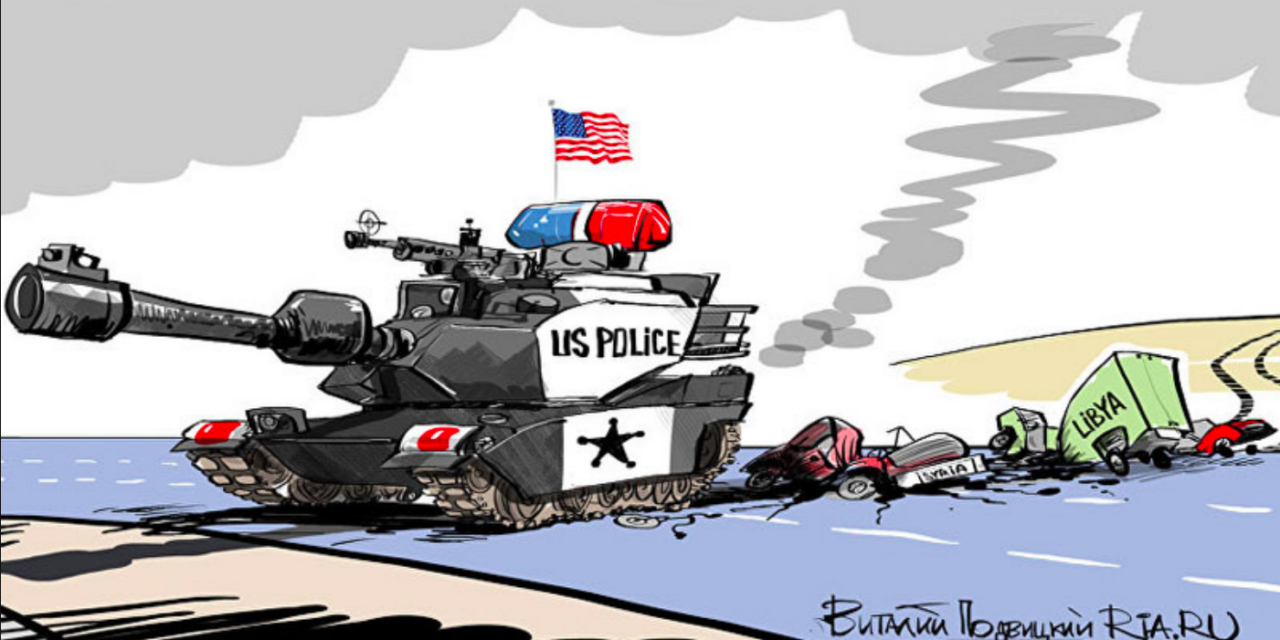In a certain sense, Europe's impotence is the result of America's foreign policy: every time Europe tried to gain some independence, American presidents - both Democrats and Republicans - attacked it as they would a vassal, writes the author of the American Conservative in his opinion article.
If the Republicans win in 2024, the administration must enter the White House with a clear foreign policy vision to oust the neoconservatism that currently dominates Washington. Not since the fusion Bush doctrine has there been a new presidential foreign policy doctrine committing America to interventionism. Although every successive president ran against the Bush doctrine, it still prevails: no Obama, Trump, or Biden doctrines were born to replace it.
(…)
The focus on China is consistent with two other realignment impulses: skepticism about NATO's usefulness and a shift away from Russia as America's primary threat. At present, however, American foreign policy is focused on a country that cannot maintain control over its own sphere of influence. And it is not "pro-Putin" who claims this. Although some have played with the idea of being pro-Russian, the media's claim that all realists are also pro-Putin is just plain slander.
While polls show that Republicans are increasingly skeptical of the escalation of the Russia-Ukraine war, only 6 percent have a positive view of Russia — the same number as Democrats.(…)
For most of American history, the national interest has been the backbone of foreign policy. The Monroe Doctrine – “Keep out of America and we'll keep you out” – was America's stance toward the world until the early 1900s. This did not mean that America did not care about democracy. The author of the Monroe Doctrine, John Quincy Adams, declared that America was "the well-wisher of the liberty and independence of all." But this was followed by the declaration that: "only the champion and protector of his own".
And this approach is woven into the character of America. After Adams lost the election, his successor, Andrew Jackson, changed practically everything in American politics, but he did not touch this principle -
as no other president had for nearly 100 years.
Until Woodrow Wilson and the First World War. Wilsonism sought to make America the gendarme of the world. However, many people do not take into account the fact that Wilsonism was soon replaced by a more realistic approach: while America was in World War II. during World War II and the Cold War, it lived "freedom", the presidents of the time willingly allied themselves with oppressive regimes. These two steps ultimately made it possible for America to win the Cold War.
On the other hand, too many people in the circles of the American elite believed that they could be defenders of the freedom of other countries. After the Cold War ended, Wilsonism prevailed; America remained the world's gendarme, focused on "promoting democracy" and failing to reform the now anachronistic institutions of the Cold War. This has led to a globalized American world order that has benefited Americans on paper: GDP growth, cheap products, and relative peace.
But that growth was a double-edged sword, as many figures in the realignment, such as Oren Cass of American Compass, have pointed out. Yes, we got cheaper products, but the price was outsourced jobs overseas. If we are to put the national interest back at the center of our foreign policy, we must abandon the Wilsonian rhetoric of promoting democracy and abandon the idea of outsourcing manufacturing. However, during the reorganization, we cannot forget that the foreign policy must be acceptable to the voters.
Americans are used to imagining themselves as the good guys, loved around the world for exporting democracy—even if that's not true. (…)It is important that conservatives make it clear what prioritizing the national interest would not mean for American foreign policy. The goal cannot be to defeat China. A distinction must be made between the end—protecting America and the American way of life—and the means to stop the Chinese threat. The goal remains the same, while the means may change over time.
If we don't keep this in mind, we'll make the same mistake we did after the Cold War when we didn't change our toolbox.
As a result, the means became an end, and America stuck to Cold War thinking and institutions, such as NATO. In doing so, we ignored the warnings of one of the Cold War's greatest warriors, Richard Nixon, who once declared that America's "interests should shape our commitments, not the other way around." But exactly the latter has happened: our Cold War systems are now shaping our national interests.
A realigning foreign policy must always keep the next step in mind, but America's strategies have often failed to do so recently. There is no better example of this failure than the Russo-Ukrainian war. Although this is not America's conflict (? - ed.) , it is still a very significant war in Europe involving a nuclear-armed state. Therefore, the United States must prepare for what comes after the war.
(…)
Fortunately, we don't have to guarantee Ukraine's security because there is a rich, heavily armed (?) entity next door: the European Union. The GDP of the European Union does not reach the GDP of America, but this is no reason for it to be so impotent. Although, to be fair, this impotence is in some ways the result of America's foreign policy: every time Europe has tried to gain some independence, American presidents, both Democrats and Republicans, have pounced on it like a vassal.
Featured image: Image by SouthFront












